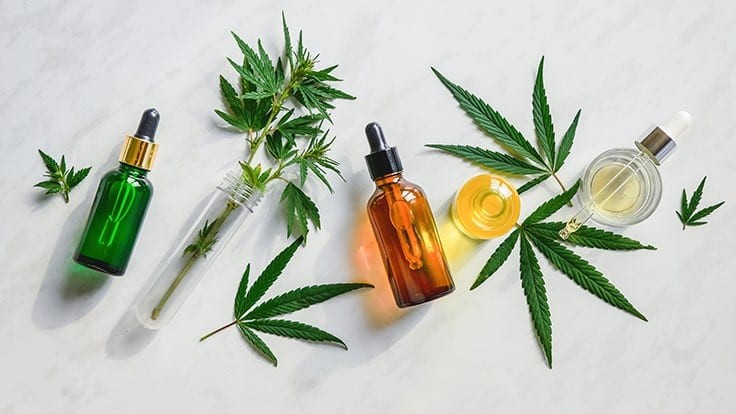CBD: Is It Safe and Effective, or Only a Health Trend?
Feb 12, 2022 02:55
These days, it seems CBD products get sold everywhere, from health stores to grocery chains. However, it does beg the question, is CBD safe and effective, or only a trend?
Consumers have stayed subjected to “snake oil” products throughout world history. How do you know that these items aren’t equally ineffective?

Although more research is needed, preliminary studies suggest that CBD is the real deal. Not only can it help treat a variety of ailments, but it’s also all-natural.
If you have avoided using CBD, read further to learn about its potential properties. Many consumers find themselves amazed at how many ailments they can treat with cannabidiol.
What is CBD, and Will It Make Me “High”?
CBD is the much easier way of saying “cannabidiol,” a compound found in cannabis plants. Yet, it lacks THC (tetrahydrocannabinol), the better-known mild psychoactive. In other words, consuming CBD strains does not produce the same “high” feeling.
Many producers extract CBD from hemp and cannabis plants with low THC levels. That allows them to prevent nearly all psychoactive compounds from remaining.
Although you may feel a slight sense of euphoria, you won’t become inebriated. It’s why you see CBD goods sold everywhere, from grocery chains to makeup retailers.
Why Do Consumers Use CBD Products?
Despite lacking the compounds needed to feel a “high,” cannabidiol shares some medicinal properties. While much more research is required, preliminary studies back these claims.
Initially, CBD entered mainstream use treating seizures triggered in young children. The prescription, Epidolex, is currently the only FDA-approved use of cannabidiols.
Yet, many consumers swear by its anti-inflammatory effects, also offered by THC-producing plants. Anecdotal evidence suggests that CBD is also useful for treating conditions, such as:
• Insomnia
• Fibromyalgia
• Chronic Pain
• Muscle Pain
• Joint Relief/Arthritis
• Muscle Spasms
• Anxiety Disorders
• Mental Health Concerns
• Stress
• And many other health concerns.
Unfortunately, we won’t know their actual effectiveness until these claims get studied further. You should also consult with a healthcare expert before taking CBD with prescription medications.
Do CBD Products Work, or Are They Only a Placebo?
Like any product sold as a health supplement, they should get researched first. Unfortunately, many consumer goods use the same shady marketing techniques that dieting products often do.
Not all products contain the level of CBD that they claim to have. That means you aren’t receiving a high enough dose to see any positive effects.
Other items may not use pure CBD, but fillers like vitamins instead. Because the FDA still has limited data, they don’t approve most of these products.
Purchasing CBD from a regulated provider is the best way to experience its fullest effects. Beware of products that make unfounded claims or seem too good to be true.
How Safe are CBD Products to Use?
Another reason why CBD has become popular is how safe it seems. That said, if products don’t contain pure compounds, they could prove risky.
Unfortunately, much of this burden falls on the consumer to carefully read labels. When items don’t contain “full-spectrum,” “hemp-derived,” or CBD percentages, they might be fake.
Another warning sign is labels that claim to offer a “cure” for anxiety or insomnia. CBD is a treatment and not a permanent fix for health concerns.
Finally, labels that state they contain “zero levels” of THC aren’t accurate. True CBD extractions will still have trace THC levels, often less than 1%.
What are the Possible Side Effects of CBD?
While CBD is a safe treatment option, some users will experience certain side effects. Although rare, a few consumers experience symptoms similar to recreational cannabis use.
Although you won’t feel a “high,” you might still experience the infamous “cotton mouth” sensation. Others might feel some nausea, diarrhea, or difficulty eating.
CBD usually treats insomnia, but users may have difficulty sleeping at first. Unfortunately, consumers likely won’t know how they will react until they try them.
That is why it is so important only to purchase authentic CBD products. Otherwise, these rare occurrences can become more frequent, especially among new users.
Can I Grow CBD at Home, or is it Illegal?
If CBD doesn’t contain THC, can you grow it at home? The answer is “it depends” – there are many different factors to consider first.
Cannabis still isn’t legal in all states, and some still prohibit home growing. Although you can find quality CBD seeds online, check your local laws first.
That said, those who can legally grow at home certainly should. Not only will users have instant access to quality and clean CBD bud but it’s cost-effective also.
Growing plants also doesn’t mean that you will likely limit your consumption to smoking or vaping. If you wish to use topicals, capsules, or oils, you can produce these CBD products from bud at home. Our recommendation is to visit CBD School for more valuable information about CBD.

Considering LASIK eye surgery? Understanding the financial aspect is an important step in making an informed decision. While the pricing may seem complex at first glance, it becomes much more manageable when you break it down. Read more
HEALTH TIPS
Jul 14, 2025 17:15

Hair serums have become a staple in modern hair care routines, and for good reason. Whether you're dealing with frizz, dullness, or damage, a good hair serum can completely transform how your hair looks and feels. But what exactly is a hair serum, and how do you use it correctly? Let’s break it down. Read more
HEALTH TIPS
Jul 05, 2025 19:09

Vaginoplasty or vaginal tightening is a safe and effective to increase your intimate health without going for any kind of surgery. Read more
HEALTH TIPS
Jun 24, 2025 19:33
Copyright © Fooyoh.com. All rights reserved. User Agreement | Privacy Policy | Contact us
| Advertising
| About us
| Careers



























































